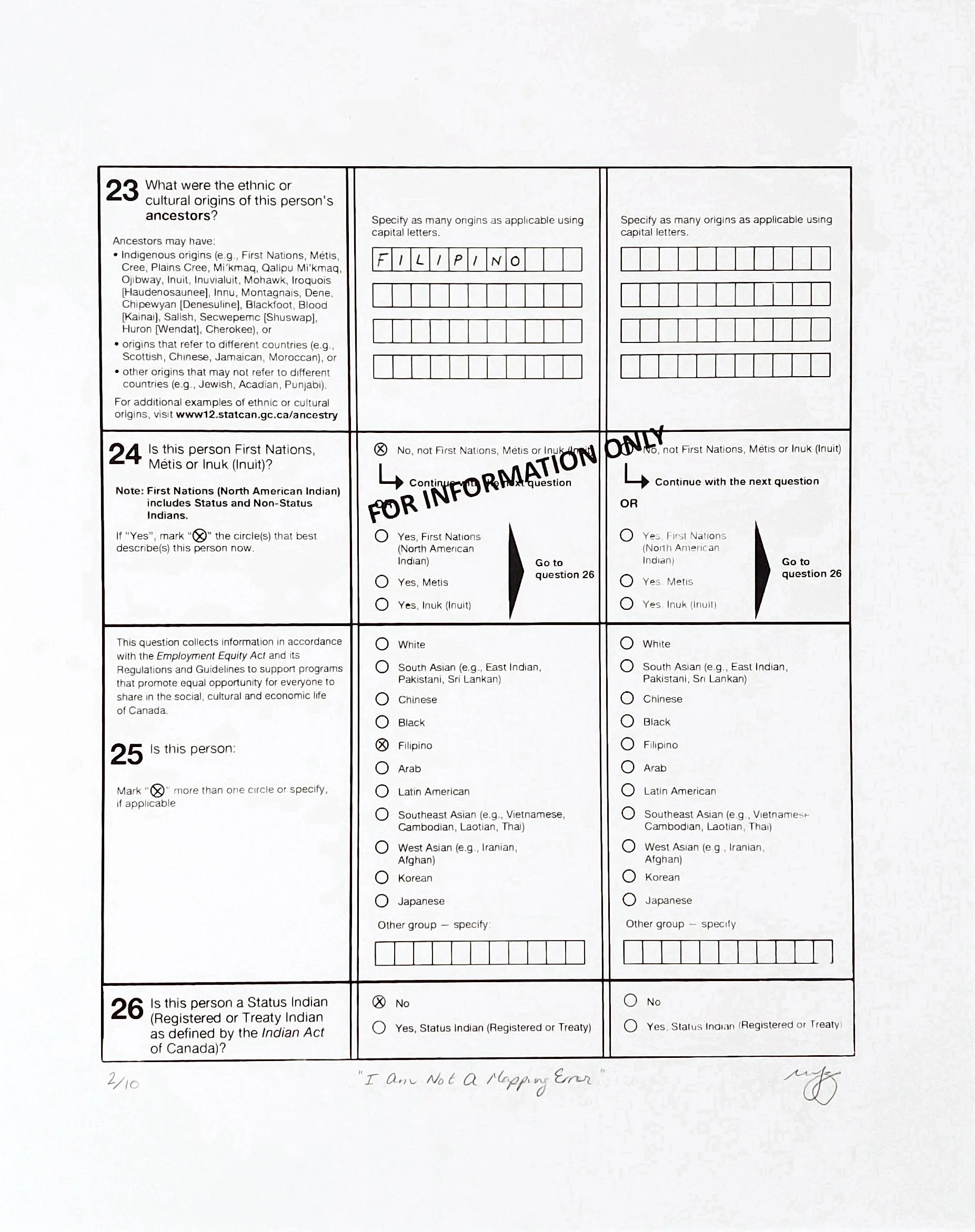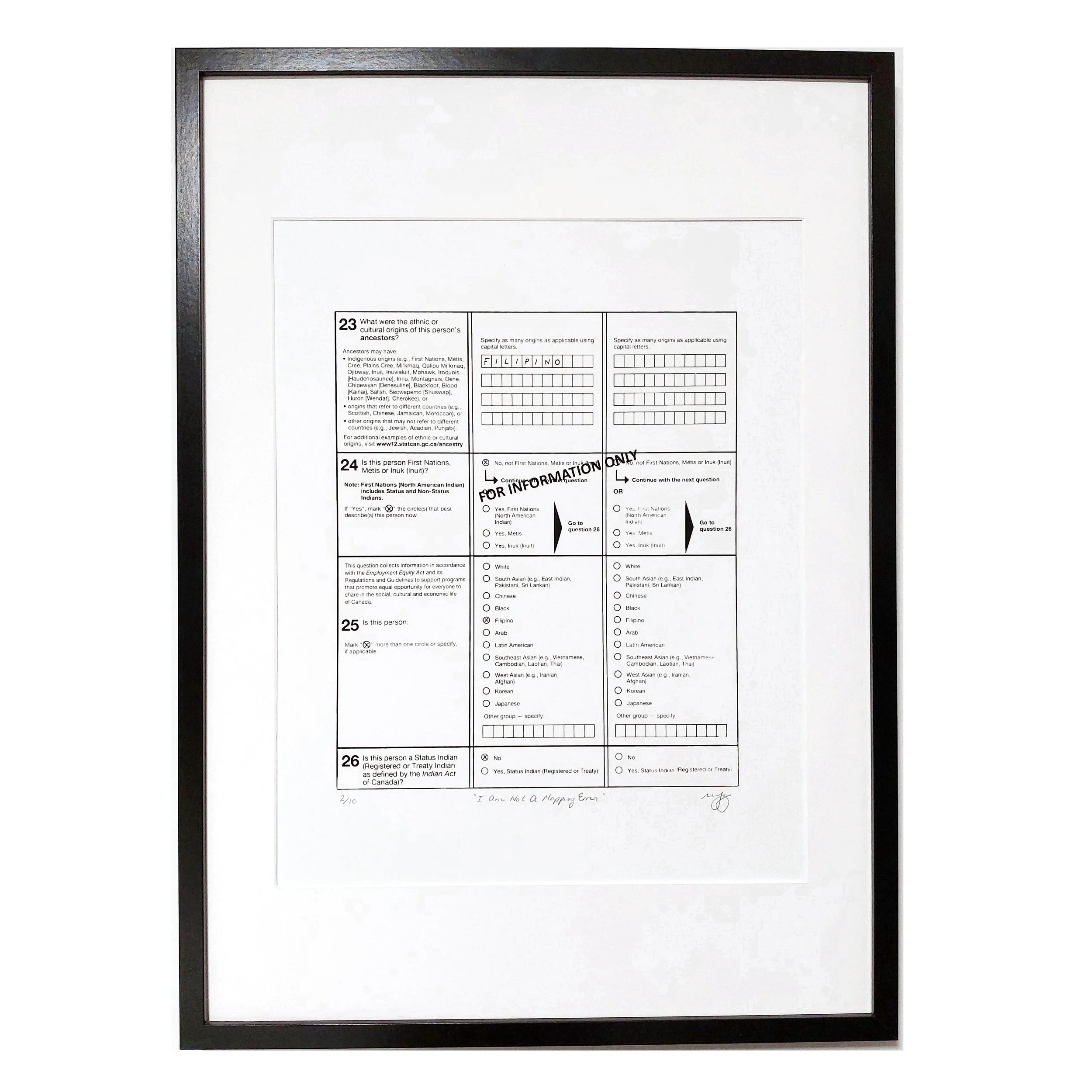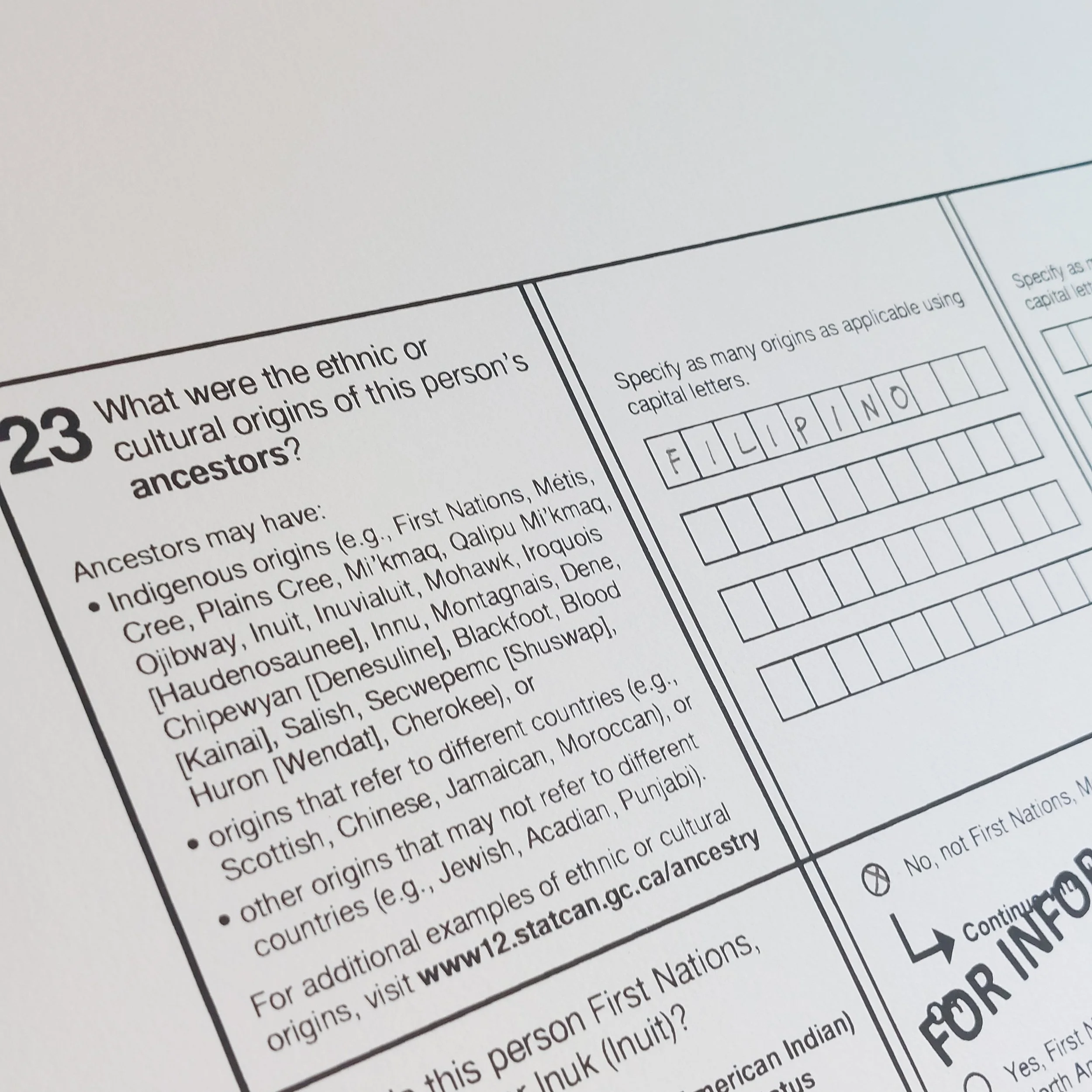I Am Not A Mapping Error
In 2021, the Canada Council for the Arts, my employer for over a decade, sent me an official letter stating they had assigned Indian Status to all employees in the organization. While this racial classification was eventually corrected for relevant employees, it remained on my personal employee records, without my knowledge or consent, for a year. The implications of this on my compensation was the only reason why the Canada Council informed me; no other employees were informed.
When questioned why and how this happened, the organization claimed it was part of an “exercise” without further explanation. Writing to management, my Director-General, the Director and CEO, and the board chair, who is Indigenous, went nowhere. My right to self-identify had been reduced to a “mapping error”.
The organization’s troubling response triggered unsettling questions around checkbox exercises, executive incentivization, ethics, data practices, politics, power, performativity, accountability, lack of care, and cultures of silence, particularly in the Canadian arts sector, which relies heavily on public arts funding. The Canada Council’s lack of acknowledgement of my own Filipina-Canadian and Asian-Canadian identity had deep and harmful impacts on my health and well-being, career, and artistic practice.
I resigned from the Canada Council as a result. I returned to Canadian Heritage, the department overseeing the Canada Council, to be part of its newly formed Equity, Diversity and Inclusion team to improve access to Canadian Heritage funding programs for equity-deserving communities. This included exploring some of the unsettling questions raised as a result of the Canada Council incident.
I Am Not a Mapping Error is my personal response to this incident as an artist, woman of colour, public servant, policy researcher and citizen. An edition of ten prints were produced. In hand printing a page from the 2021 Census referencing ethnic or cultural origins, and determining my own Filipino identity and ancestors’ origins, I engage in repetitive, physical labour to self-identify.
I invite viewers to start a conversation about what it means to inflict harm by dismissing a person’s right to express their culture, heritage and identity.




